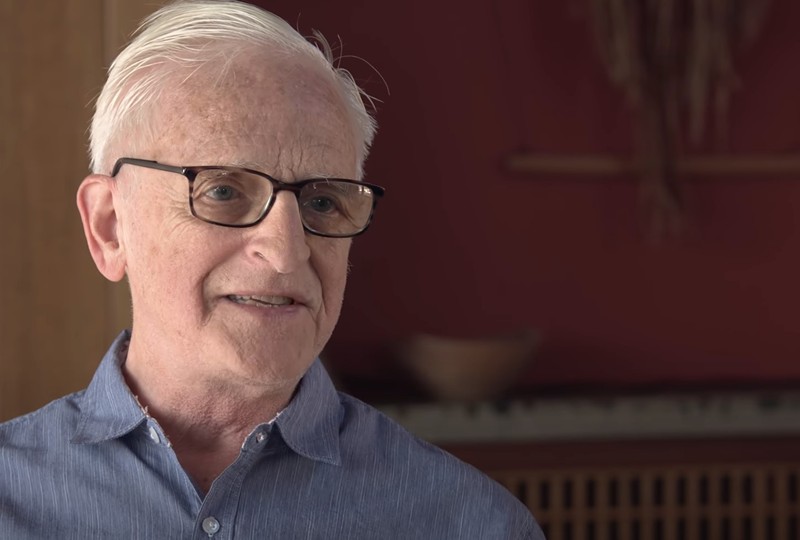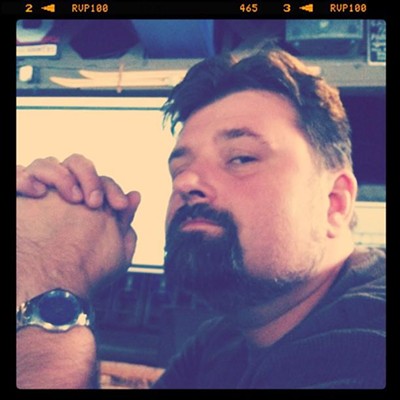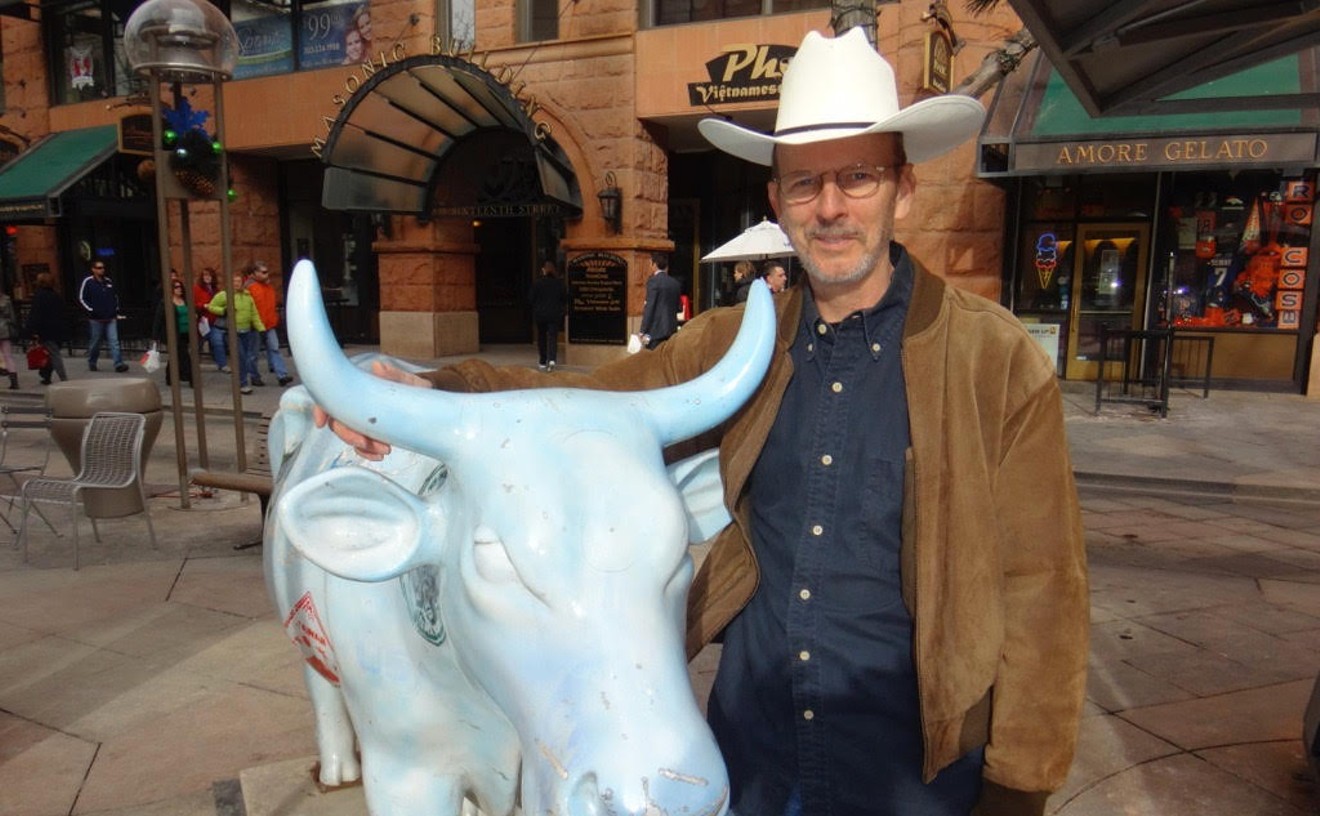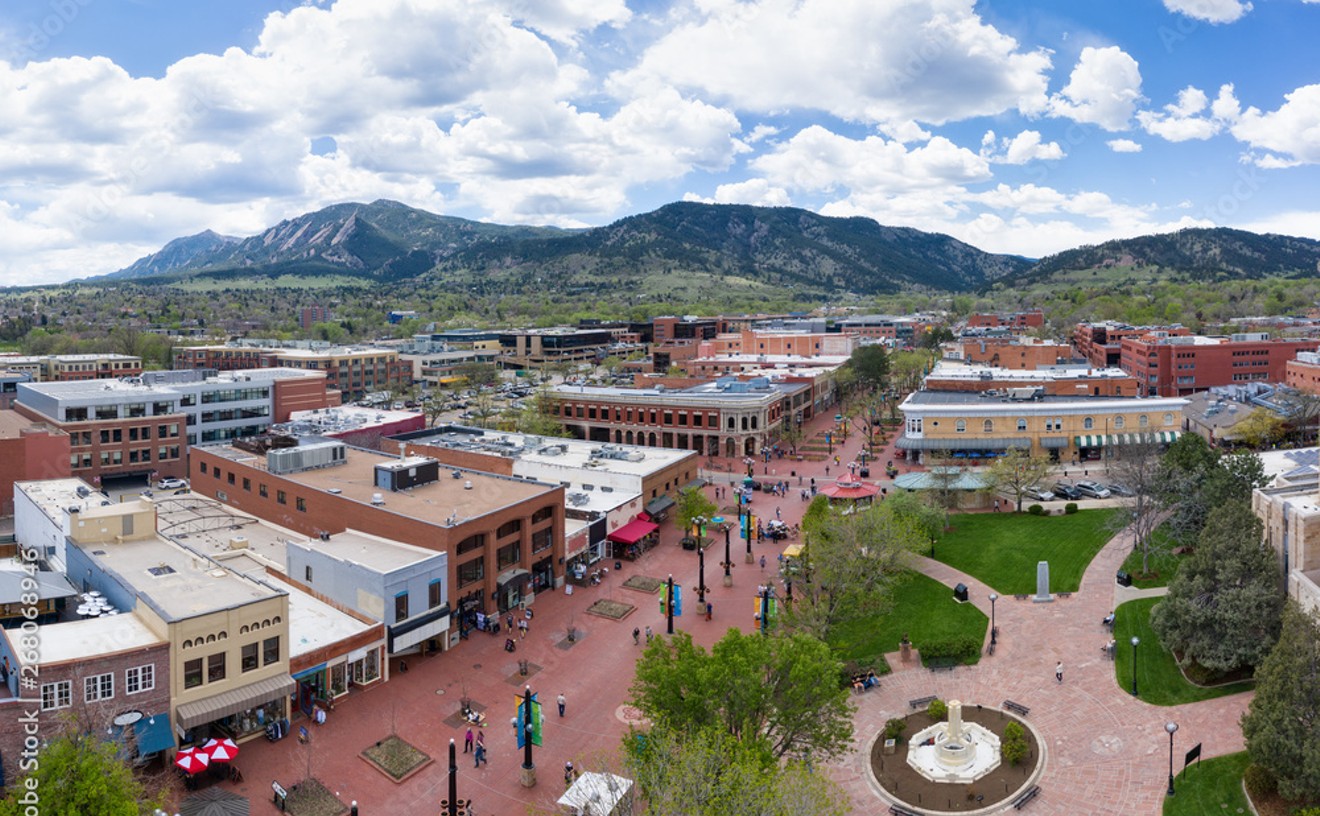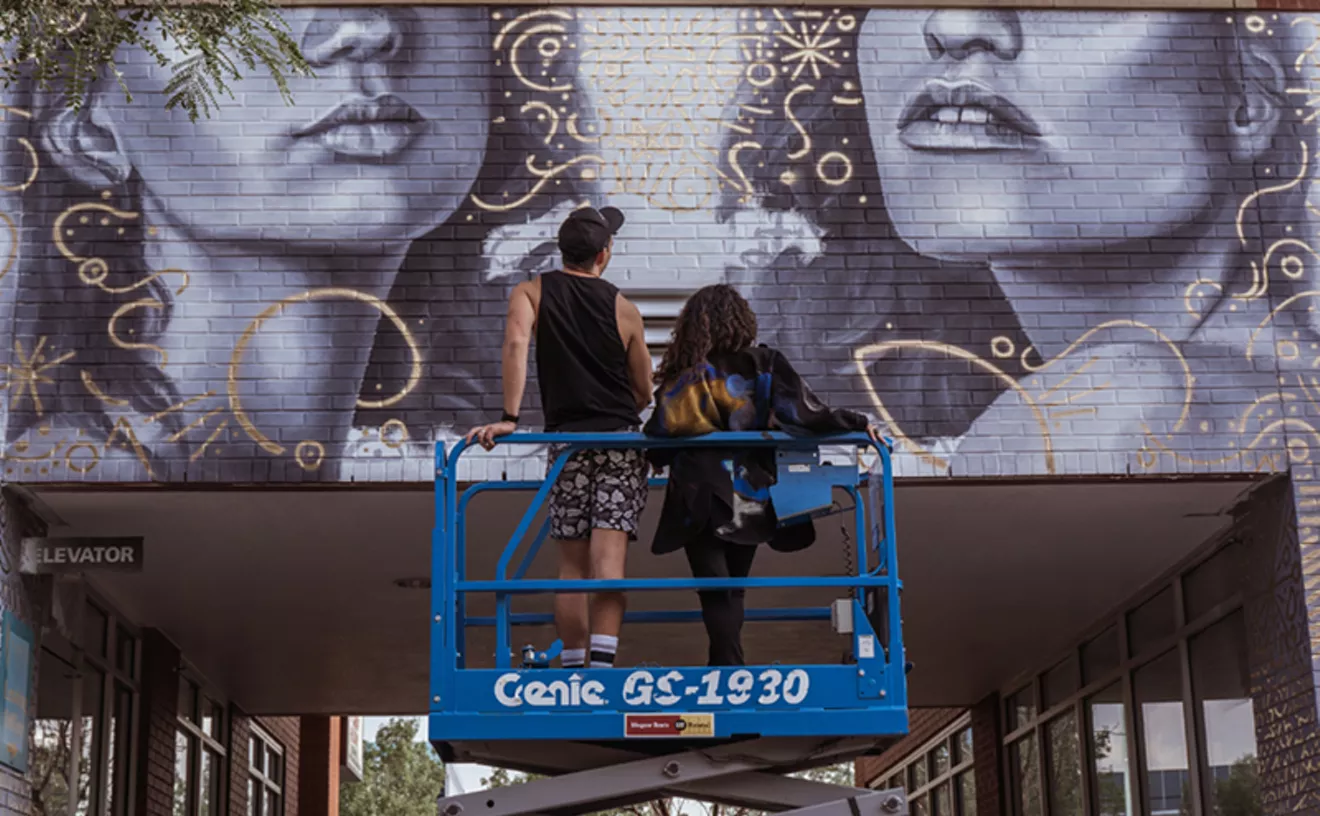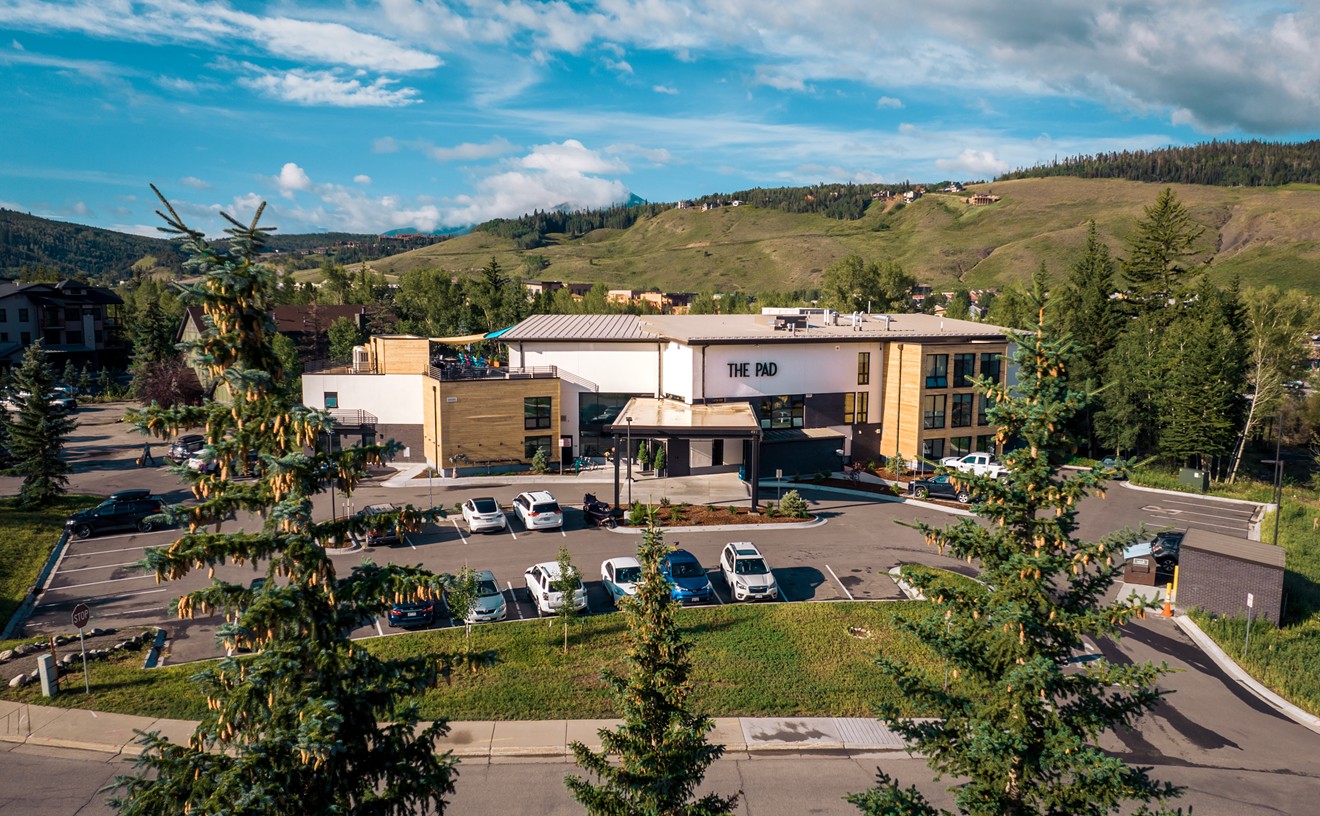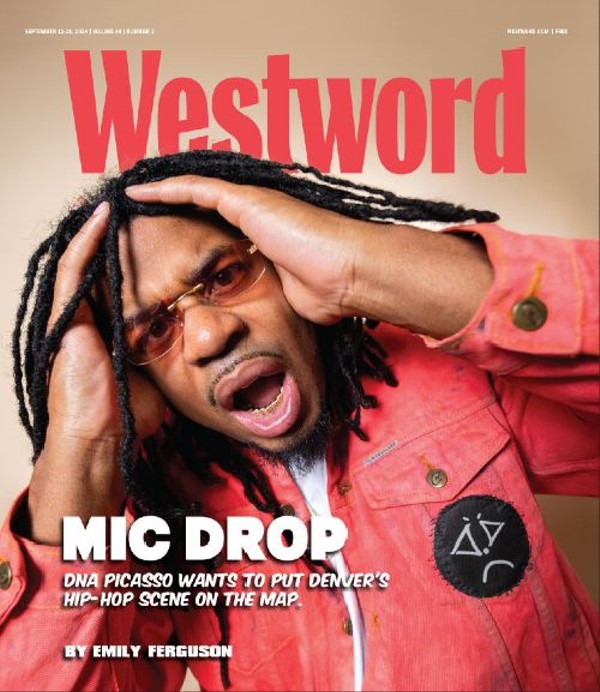Fox isn’t from Boulder, or even Colorado; his connection comes through his relationship with Naropa University. In 1999, he created and helped run the master’s degree program at Naropa, and added a Doctorate of Ministry degree that reflected much of the work, thought and philosophy contained in his 1993 book The Reinvention of Work: A New Vision of Livelihood for Our Time. “We at CU Boulder do a lot of the holding for Naropa,” explains project archivist Kami McDaniel. “We just have more space.”
Fox says he has several reasons for having chosen CU Boulder: "[It already] houses the work and papers of Rabbi Zalman Schachter-Shalomi, whom I greatly admired and who supported my work, too. He told the Vatican that 'what Matt Fox is trying to do in Christianity, I am trying to do in Judaism.' I think more and deeper links between faith traditions are vital for the survival of our species and the planet. And Christianity must rediscover its Jewish roots to renew itself, its non-dualism and its prophetic and wisdom traditions, which Jesus knew. I call this sharing of wisdom traditions 'Deep Ecumenism,' and Reb Zalman liked that phraseology because it named his own life choices."
Other reasons include the University of Colorado's ongoing commitment to "ecological research and healing and protecting of our endangered Mother Earth," as Fox puts it. But another reason is more personal to Fox: "I respect very much the work of Bernard Amadei, from the engineering department of [CU Boulder]. When he came to our University of Creation Spirituality in Oakland as a student, he said to me, 'I’m burned out by academia and by engineering, and don’t know what’s next for me.' Then, after a few weeks in our program, he went back to [Boulder] and started Engineers Without Borders, which now has over 18,000 engineers in it doing wonderful things in parts of the world that need it the most, from Africa to Afghanistan to Haiti to the Amazon, etc. His passion for reinventing his profession moved me and was why I started our university in the first place. More recently, he told me that his time in our university is what inspired him to start EWB."
The groundbreaking theologian was born Timothy James Fox in 1940 in Wisconsin, and took on the name Matthew when he entered the Catholic Dominican Order. He studied at the Aquinas Institute in St. Louis, and later graduated summa cum laude with a Doctorate of Spiritual Theology from the Institut Catholique de Paris. After teaching a short time at major religious universities, he moved to Mundelein College in Chicago (now part of the Loyola University system) to start the Institute in Culture and Creation Spirituality.
There Fox began moving toward the fringe of Catholic doctrine, both professionally and philosophically. He focused on “creation spirituality,” a set of beliefs largely antithetical to the Creation-Fall-Redemption-Consummation paradigm upon which even the modern Catholic Church is still largely based. The differences go all the way back to original sin, a concept Fox rejects in favor of what he calls “original blessing,” which claims humanity as part of the “good” conveyed in the Genesis creation story.
But Fox’s new perspective on faith doesn’t end there; according to his website, creation spirituality espouses the Aquinas ideal that virtue exists within passion, in contrast to the Augustinian concept of virtue rising from strong will and temperance. Creation spirituality also leans into the teachings of Meister Eckhart, a twelfth-century German theologian whose views on the soul's relation to God caused the Catholic Church to label him a heretic and excommunicate him. Fox dug into Eckhart's work with his 1980 book Breakthrough: Meister Eckhart's Creation Spirituality, in New Translation, and in 2014's Meister Eckhart: A Mystic Warrior for Our Times.
All of Fox's well-meaning dissent from Catholic doctrine led then-cardinal (and future Pope Benedict XVI) Joseph Ratzinger to request that Fox be investigated by the Dominican Order in 1984. A panel of three theologians examined his writings and found them not to be heretical, causing Ratzinger to order a second review, which never materialized.
“By 1988, Ratzinger had apparently had it,” says McDaniel. “But they were still committed to trying to solve the issue internally, with as little fanfare as possible.” So Ratzinger silenced Fox for a full year with Vatican approval. “He was told he wasn’t able to teach or speak in public for a year,” she adds. Fox kept doing his work on low volume; he respected the silencing placed upon him and didn’t address a congregation in an official capacity until it was lifted, at which point he once again took the pulpit. “In his first speech after the silencing," McDaniel laughs, “his opening line was something like, ‘As I was saying before I was so rudely interrupted…’”
The discord between the Catholic Church and what Fox was doing and teaching only grew. He was “doing a lot of work with the AIDS epidemic and those affected by it in the early ’90s,” notes McDaniel. “He was labeled a ‘feminist theologian’ in Cardinal Ratzinger’s papers. He was an advocate for what we now call the LGBTQ+ population at a time when that wasn’t happening much anywhere, let alone in the Dominican Order.”
If Fox’s 1988 official period of silence was a warning shot across his theological bow, he remained undeterred by it. By 1993, Fox's stubborn disagreements with Catholic authority culminated in his expulsion from the Dominican Order for "disobedience."
And while such an action may have been expected, it nonetheless took a toll on Fox. “It was a pretty emotional thing, as you might expect,” McDaniel says. “He still very much considered himself a Catholic. It was just the tradition he grew up in.”
As with many disillusioned Catholics, Fox found himself drawn to the Episcopal Church. He met British Anglicans who’d developed religious “raves” as a way to relate to and attract more youth. Inspired, Fox began hosting his own “Techno Cosmic Masses” in Oakland, California and, eventually, other cities. “Post-modern times require post-modern rituals and worship,” Fox is quoted as saying on the Cosmic Mass website. “Getting high on beauty and on dancing (and sweating) hard is ancient wisdom.”
Fox was ordained by the Episcopal Church as a priest in 1994, which led him to establish the University of Creation Spirituality in Oakland in 1996. He then moved to Naropa in 1999. He led [the UCS] program for nine years, handing it off to others in 2005. “He’s still part of the Anglican communion,” says McDaniel. “But he doesn’t tend to do a lot of work directly through religious institutions. He does his own thing — travels and speaks. He still enjoys a pretty significant fan base.”
But why would Fox donate his writings and records and history now rather than posthumously? “He's getting older, obviously,” says McDaniel. “He’s started to think about his legacy. What will he do with all this stuff? How could people continue to access it so it can still be helpful? It comes from a place of wanting to get everything in a place where he knows it’ll be cared for. These things can get really complicated if things aren’t arranged before someone passes.
“And at least this way, he got to contextualize it in a way of his choosing,” she adds. “When it all showed up here — 36 boxes or so — [Fox] had already categorized everything for us. He’d already pre-archived it for us. I was very impressed by the level of organizing he’d done when it showed up.”
"I am hoping that my papers can help tell a fuller story of the creation spirituality lineage and movement that I have been blessed to be a part of," says Fox. "The story has been inspirational — the journeys of Deep Ecumenism, including, of course, my learning from Indigenous teachers and ceremonies and wisdom teachers, too. But also the work of today’s post-modern science, including people like cosmologist Brian Swimme and Rupert Sheldrake, with whom I’ve written two books. A 'creation spirituality' should learn from those scientists who explore nature or creation after all, and today’s science is undergoing a profound awakening of its own.
"No doubt the collection will include some of the drama and resistance that creation spirituality faced from certain powers-that-be in the Vatican for 34 years," Fox admits. "But also many letters that supported the movement then and today. But seldom do institutions accept change willingly, so resistance is to be expected."
Fox believes that creation spirituality is more than just his legacy: It's important to the survival of our planet and its people. "I think it is clear, with every wildfire and flood and extinction of still another species and the climate change challenging us all, that we need to rediscover the sacredness of Earth if we are to survive and make the sacrifices that are required of us," he says. "And this lies at the heart of creation spirituality and its call for eco-justice, gender justice and balance, economic, racial and social justice. I hope the collection helps to deepen one’s understanding and practice of creation spirituality and how it might help rejuvenate all our religious traditions."
The archives are still being processed, and it’ll be an ongoing process for at least as long as Fox is still living and working. McDaniel already has a couple of moments in the experience that are unforgettable: “One was just holding the original letters from Joseph Ratzinger. That was a 'wow' moment. We have so much Western history here in Colorado, but this was something that reaches way beyond that.”
The other moment was a bit more personal: Fox’s notes on officiating both Jerry Garcia’s wedding and, later on, his funeral. “That was just awesome to see,” McDaniel says. “Very different moments, for sure.”
But some absolutely divine history.
The Reverend Doctor Matthew Fox is the author of many books, and his work can be found all over the web. For more information on what’s available through the CU Archives, inquire at their website.

